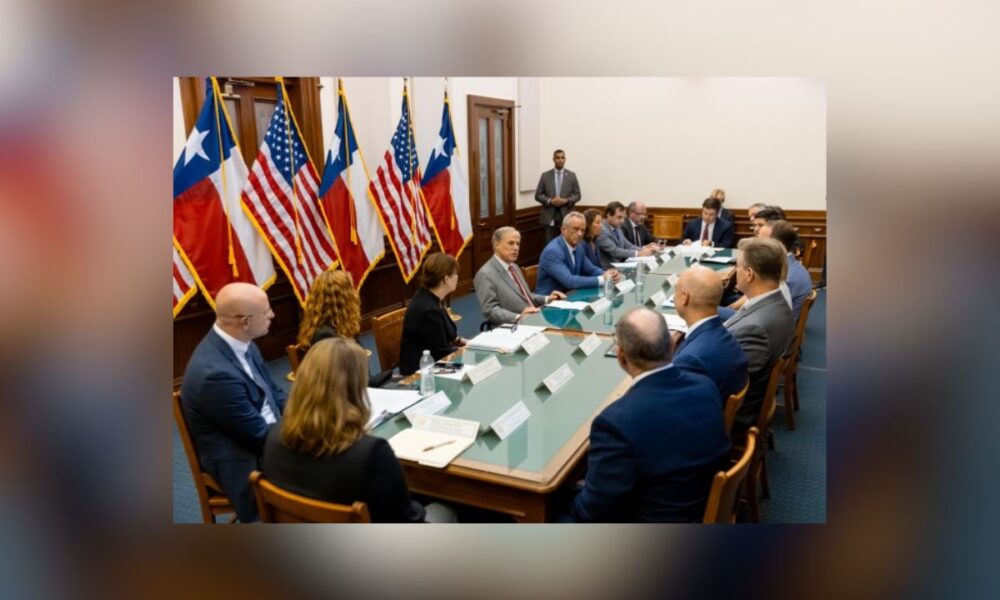Texas Gov. Greg Abbott and U.S. Health and Human Services Secretary Robert F. Kennedy Jr. convened healthcare leaders on Thursday to address critical gaps in rural medical services.
The Austin roundtable focused on expanding access for the 6 million Texans living in the state’s 190 rural counties. The meeting highlighted new funding streams totaling $800 million over a five-year period. These investments target behavioral telehealth, artificial intelligence innovation, and laboratory modernization across underserved communities.
Abbott emphasized Texas’ role in advancing the Trump administration’s healthcare agenda.
“Our goal has to be to ensure that every corner of our state is going to be prepared to respond to the health care needs of their community,” Abbott said.
The discussion followed Abbott’s signing of the Make Texas Healthy Again legislative package on Wednesday. The new laws aim to improve health and nutrition decisions across the state.
Kennedy praised recent initiatives supporting rural healthcare infrastructure.
“Governor Abbott, thank you for your dedication to rural health care providers in Texas,” Kennedy said. “We will strengthen and expand rural health like never before. That is my promise to rural communities, my promise to Texas, and my promise to the American people.”
The secretary highlighted Trump’s One Big Beautiful Bill, which allocates $50 billion nationally for rural health transformation. Texas will receive $100 million annually for five years in federal support.
State funding adds another $300 million to the effort. The combined resources will address maternity services, childcare gaps, and access to mental health services.
Rural hospital executives and community health leaders attended the roundtable. Representatives included CEOs from Anson General Hospital and Winkley County Hospital District, as well as state health commissioners.
The 89th legislative session significantly expanded rural hospital grant programs. Lawmakers targeted specific challenges facing remote communities, including provider shortages and facility closures.
Abbott acknowledged ongoing challenges despite recent progress: “We have an obligation to ensure that those communities are able to succeed.”
Texas Tech University System and Texas A&M’s Rural and Community Health Institute participated in discussions. Mental health organizations, including Bluebonnet Trails Community Services, contributed perspectives on behavioral health needs.
Federal officials from HHS joined state counterparts to coordinate implementation strategies. The collaboration aims to streamline funding distribution and maximize program effectiveness across rural Texas.


